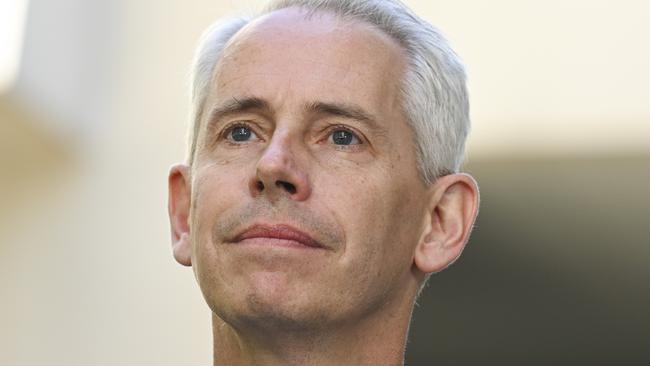
Last week, the government stood accused of dereliction in its haste to try to ram through its deportation bill before the Easter break.
Now an obscure Senate committee for the scrutiny of bills has found major problems with the deportation bill itself and the powers it confers to the minister.
Most notably, this committee is dominated by Labor members. None issued a dissenting version of the committee’s report, which was tabled last Wednesday. Nor has any since sought to distance themselves from the findings.
These are blunt in an assessment of flaws in the legislation.
For Anthony Albanese, the concern will be whether this reflects the start of a pushback on the bill within the Labor ranks, considering it violates several principles fiercely defended by the Labor left.
The standout is the principle of mandatory sentencing, which is outlawed in the party policy platform.
The committee, which prides itself on being non-partisan, consists of three Labor MPs, two Liberals and one Greens and is chaired by Liberal senator Dean Smith.
It primarily looks at bills through the lens of its impact on individual rights, liberties, ministerial powers and parliamentary scrutiny.
The report is technical in detail but outlines a range of problems with the legislation.
One could be reasonably satisfied that if three Labor MPs were happy to sign off on the report, which is highly critical of legislation proposed by the government that they represent, then it may be a view shared more broadly within the Labor caucus.
Having been denied passage of the bill by the Coalition, is this the start of a pushback within Albanese’s own ranks?
Albanese’s political instincts have forced him to apply a pragmatic rather than ideological approach to a disaster of the government’s own doing.
He knows Labor is vulnerable on this front. The irony is rich.
This is a bill that Labor would never have supported if proposed by a Coalition government – for all the reasons outlined in the committee report.
Albanese has artfully tried to distance himself from the public debate, leaving it to the ministers responsible – Immigration Minister Andrew Giles and Home Affairs Minister Clare O’Neil.
This is the second problem.
The process over which they have presided has been shambolic.
And the government has still failed to explain its claims to “urgency” for seeking to rush the bill through last week.
Foreign Minister Penny Wong maintained at the weekend that it had nothing to do with the new High Court case ASF17.
This is due to be heard on April 17.
This case goes to the heart of the issue that the deportation bill seeks to resolve – the non-co-operation of people designated by the government for deportation after exhausting all legal avenues in their attempts to stay in the country.
O’Neil says otherwise, having admitted last week that it was only partially linked to the new High Court case.
It should not be forgotten that the government itself initiated this new case in response to the NZYQ case of last year that triggered the legal and political crisis in the first place.
It is now seeking clarification on the issue of non-co-operation.
If one accepts the obvious – that the proposed laws have everything to do with ASF17 – then Albanese has another problem.
If the High Court is as swift in delivering its verdict as it was in NZYQ – around 20 days – then there is every chance that the decision will be handed down before the bill comes back before parliament in May.
The separate Senate inquiry into the bill could report earlier, and parliament could be recalled to pass the laws, but only if the government reveals why the matter is so urgent.
To do so would be to signal that it is trying to legislate ahead of the High Court, and admit that it had, once again, grievously erred in its handling of this issue from the beginning.




The immigration detainee debacle haunting Anthony Albanese rolls from one disaster to the next.